At some point, everyone has to sit down and discuss the need for life insurance. Yes, it seems overwhelming, but obtaining life insurance is a necessary step in preparing your family for life without you. This is especially true when dealing with the financial aspect of planning a funeral.
FSN Funeral Home understands that deciding what type of life insurance you need and why it is important can be somewhat confusing. So, we reached out to Gary DeSha from Gary DeSha Insurance who was able to help with questions concerning life insurance. We hope this interview is informative and answers some questions you may have concerning life insurance.
What You Need To Know About Life Insurance and Funeral Planning
FSN Funeral Homes: When it comes to funeral planning, why is life insurance so important?
 Gary DeSha: All of us will likely have to face the death of a close family member at some time in our lives. Perhaps you already have – and the painful memories are still there. In addition to grieving the loss and settling your loved one’s estate, there is also the immediate concern over funeral costs and how to pay for them. It’s a heavy weight to carry for surviving loved ones. Many of us never think about how our family will pay for our funeral.
Gary DeSha: All of us will likely have to face the death of a close family member at some time in our lives. Perhaps you already have – and the painful memories are still there. In addition to grieving the loss and settling your loved one’s estate, there is also the immediate concern over funeral costs and how to pay for them. It’s a heavy weight to carry for surviving loved ones. Many of us never think about how our family will pay for our funeral.
The cost may surprise you. According to the National Funeral Directors Association, the average cost of a funeral in 2006 was $7,323 and that was seven years ago. This cost did not include the cemetery plot, monument, flowers, obituary or other cash expenses, which could push the cost well over $10,000.
Why burden your family with these costs at a time when they already have many other concerns? With whole life insurance, you can help reduce the worry your family will experience when you die. The life insurance policy assures that money will be in place for your family’s needs.
FSN Funeral Homes: So, exactly what are the different types of life insurance that can help cover these costs?
Gary DeSha: There are three types of plans, one that immediately provides a full death benefit and two that provide a limited death benefit in the first two years. Plan type is based on the answers provided on the insurance application. The three plans are as follows:
- PlanRight with a Level Death Benefit – The death benefit equals 100% of the face amount. A maximum face amount of $35,000 is available, depending on your age at the time of application.
- PlanRight with a Graded Death Benefit – The death benefit is limited to 30% of the face amount in the first year, 70% in the second year and 100% beginning with the third year. A maximum face amount of $20,000 is available, depending on your age at time of application.
- PlanRight with a Modified Death Benefit – The death benefit is limited in the first two years to a return of premiums paid, plus 10% of annual interest. In the third year, the benefit equals 100% of the face amount. A maximum face amount of $15,000 is available, depending on your age at the time of application.
The accidental death rider can be added, at an extra cost, on PlanRight certificates with a level death benefit. The rider pays an additional death benefit if an accidental death occurs. For graded and modified plans, 100% of the face amount is paid if accidental death occurs in the first two years. There is no additional premium for this coverage. All PlanRight certificates include a common carrier accidental death rider that pays an additional death benefit (up to twice the face amount) with no additional premium, if the insured dies due to an accidental bodily injury that occurs on a common carrier. However, the insured must be a fare paying passenger.
FSN Funeral Homes: With so many different types of insurance, how does one know which type is right for them to ensure they receive the best coverage?
Gary DeSha: Find a policy with guaranteed premiums. PlanRight premiums are level and guaranteed. Unlike some other expenses in life, PlanRight premiums remain the same for as long as you keep the coverage current. Secondly, make sure your policy’s benefits are guaranteed. With PlanRight, your death benefit is guaranteed as long as premiums are paid. While your coverage is in effect, the policy will never be cancelled because of changes in your health. Thirdly, make sure you can access the cash value. In times of need, PlanRight allows you to borrow or use the cash value of the policy as collateral for a loan. Lastly, there are tax advantages to owning a policy like this. One advantage is your beneficiary will generally not owe any income taxes on the benefit proceeds.
FSN Funeral Homes: Along with there being different types of insurance, people can also determine their coverage. So, how does one even know how much coverage they need that includes funeral arrangements?
Gary DeSha: According to the National Funeral Directors Association, the average cost of a funeral in 2006 was $7,323. As stated above, this cost does not include the cemetery plot, monument, flowers, obituary or other cash expenses. What if your loved one dies out of the country or out of state? The costs incurred in transporting the remains back home for the funeral could run several thousand dollars. You don’t want to plan for the worst, but on the flip side, you don’t want to be caught with unexpected expenses either. So check with your local funeral home to get an idea of the current costs associated with a funeral. Once you have an idea of what the funeral would cost, you can then determine what life insurance amount you will need.
FSN Funeral Homes: Lastly, when do you recommend that life insurance be purchased?
Gary DeSha: You may purchase life insurance at any age. If you’re single, your parents or siblings will not have to deplete their savings to take care of your final expenses. If you’re married, your family depends on you to provide a comfortable, safe lifestyle. You need help to protect that lifestyle. Contact an agent that offers a wide range of products that can meet your insurance needs. Many policies offer more than a death benefit. Some have optional accident or disability income insurance which will provide regular monthly income if you become totally disabled and unable to work as a result of an accident. Other policies offer accumulating cash value that can be used at retirement. Foresters, for example, offers an optional family health benefit to aid with unexpected hospital costs in the event of a natural disaster.
We may not want to think about life without us, but it is inevitable. Funeral planning and life insurance are the best way to provide for your loved ones’ needs after you are gone. You should be able to take the information Mr. DeSha provided and discuss your needs with both your insurance agent and your funeral home.
The key takeaways here are:
- Life insurance is very important when planning a funeral.
- Find a policy with guaranteed premiums.
- Check with your local funeral home on costs of a funeral. Once you have an estimated cost, you’ll have an idea of the amount of life insurance you need.
Gary DeSha is an independent insurance agent in Alexandria, MN. Over the years, Mr. DeSha has helped many families in Minnesota plan for their financial future. Gary DeSha Insurance is located at 2109 Lake Park Place, Alexandria, MN.
 Working with my parents pre-planning. How do I know what FH’s are independently owned vs big corporation? What should I expect to pay for Funeral Home access, Casket, procession to grave site?
Working with my parents pre-planning. How do I know what FH’s are independently owned vs big corporation? What should I expect to pay for Funeral Home access, Casket, procession to grave site?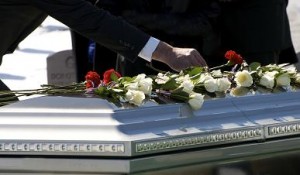 Here are some tips I can give you:
Here are some tips I can give you: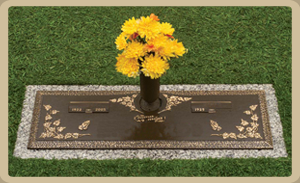
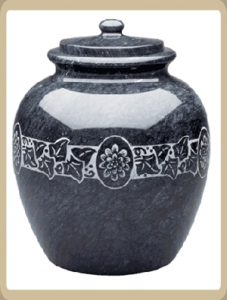
 Gary DeSha: All of us will likely have to face the death of a close family member at some time in our lives. Perhaps you already have – and the painful memories are still there. In addition to grieving the loss and settling your loved one’s estate, there is also the immediate concern over funeral costs and how to pay for them. It’s a heavy weight to carry for surviving loved ones. Many of us never think about how our family will pay for our funeral.
Gary DeSha: All of us will likely have to face the death of a close family member at some time in our lives. Perhaps you already have – and the painful memories are still there. In addition to grieving the loss and settling your loved one’s estate, there is also the immediate concern over funeral costs and how to pay for them. It’s a heavy weight to carry for surviving loved ones. Many of us never think about how our family will pay for our funeral.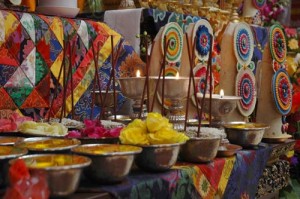
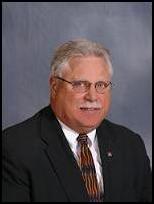
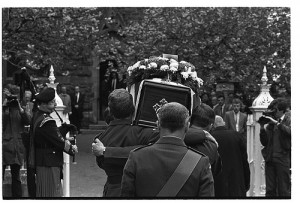
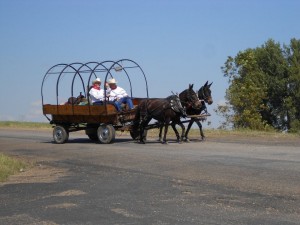

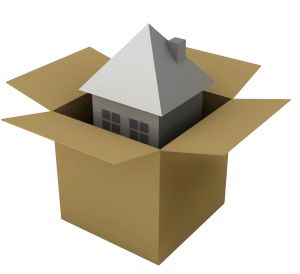 There are three categories of funeral providers to choose from.
There are three categories of funeral providers to choose from.